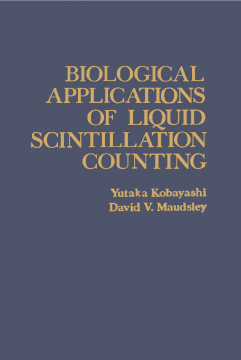
Additional Information
Book Details
Abstract
Biological Applications of Liquid Scintillation Counting, based on a series of lectures given at the Worcester Foundation for Experimental Biology, discusses the various biological applications of liquid scintillation counting and presents its principles in a manner that is simple, practical, and useful. This book explains the fundamentals of scintillators and the scintillation process, from sample preparation to testing and setting up a counter and the application of radiotracers.
This text is organized into six chapters and begins with a historical overview of liquid scintillation counting, emphasizing two major events that stimulated its development: the discovery of organic compounds called ""scintillators"" and the introduction of photomultiplier tubes. This book considers the factors that affect the performance of photomultiplier tubes, including temperature and magnetic fields, and the use of liquid scintillation counting to measure radioactivity. The discussion then shifts to the factors that must be taken into account when choosing a method for preparing samples, including the physical and chemical characteristics of the sample, the isotope or isotopes of the sample, and the anticipated level of radioactivity. The following chapters look at the general considerations when installing a liquid scintillation counter, procedures for applying radiotracers, and practical aspects of sample preparation.
This book is intended for physicists and experimental biologists.
